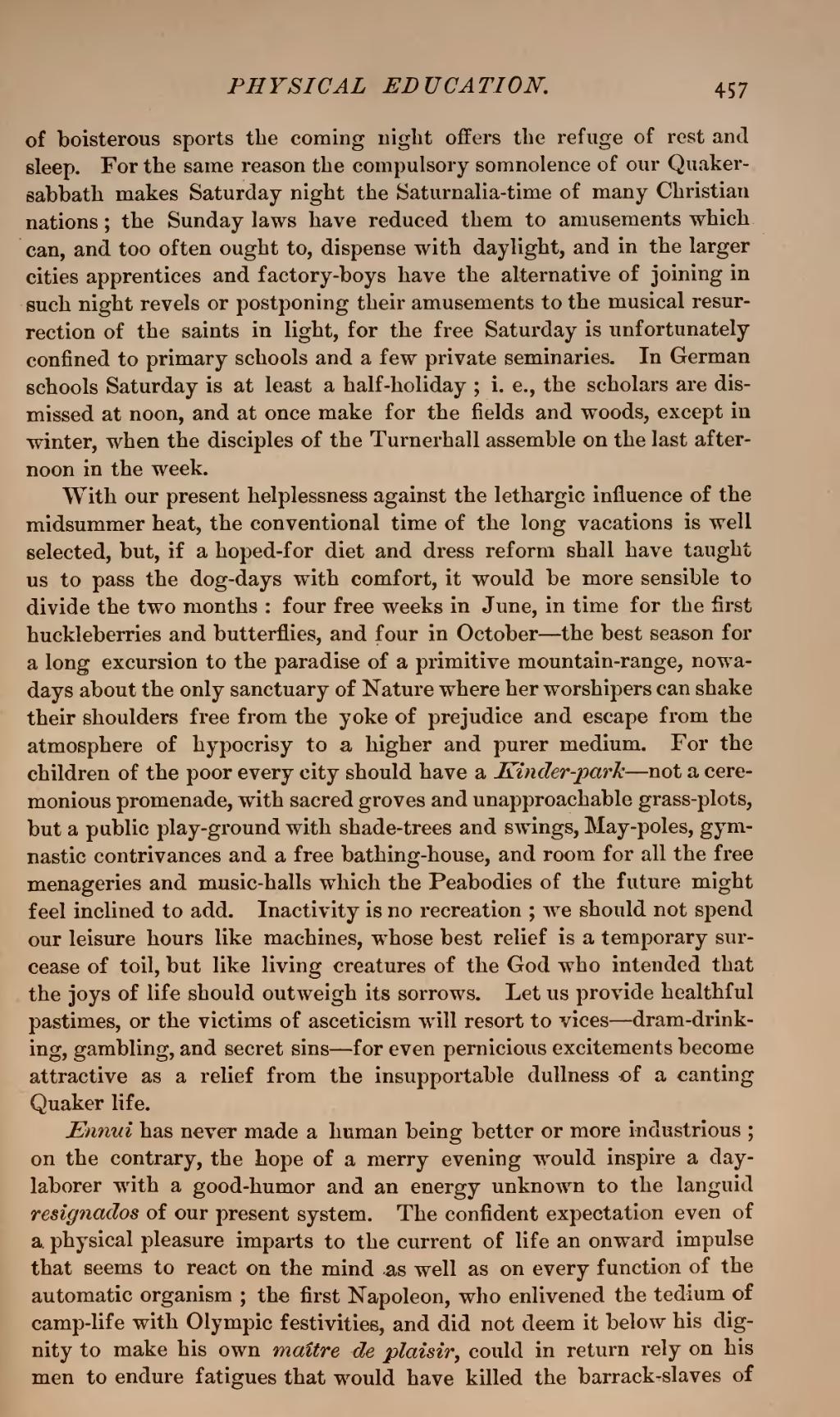of boisterous sports the coming night offers the refuge of rest and sleep. For the same reason the compulsory somnolence of our Quaker sabbath makes Saturday night the Saturnalia-time of many Christian nations; the Sunday laws have reduced them to amusements which can, and too often ought to, dispense with daylight, and in the larger cities apprentices and factory-boys have the alternative of joining in such night revels or postponing their amusements to the musical resurrection of the saints in light, for the free Saturday is unfortunately confined to primary schools and a few private seminaries. In German schools Saturday is at least a half-holiday; i. e., the scholars are dismissed at noon, and at once make for the fields and woods, except in winter, when the disciples of the Turner hall assemble on the last afternoon in the week.
With our present helplessness against the lethargic influence of the midsummer heat, the conventional time of the long vacations is well selected, but, if a hoped-for diet and dress reform shall have taught us to pass the dog-days with comfort, it would be more sensible to divide the two months: four free weeks in June, in time for the first huckleberries and butterflies, and four in October—the best season for a long excursion to the paradise of a primitive mountain-range, nowadays about the only sanctuary of Nature where her worshipers can shake their shoulders free from the yoke of prejudice and escape from the atmosphere of hypocrisy to a higher and purer medium. For the children of the poor every city should have a Kinder-park—not a ceremonious promenade, with sacred groves and unapproachable grass-plots, but a public play-ground with shade-trees and swings. May-poles, gymnastic contrivances and a free bathing-house, and room for all the free menageries and music-halls which the Peabodies of the future might feel inclined to add. Inactivity is no recreation; we should not spend our leisure hours like machines, whose best relief is a temporary surcease of toil, but like living creatures of the God who intended that the joys of life should outweigh its sorrows. Let us provide healthful pastimes, or the victims of asceticism will resort to vices dram-drinking, gambling, and secret sins for even pernicious excitements become attractive as a relief from the insupportable dullness of a canting Quaker life.
Ennui has never made a human being better or more industrious; on the contrary, the hope of a merry evening would inspire a day laborer with a good-humor and an energy unknown to the languid resignados of our present system. The confident expectation even of a. physical pleasure imparts to the current of life an onward impulse that seems to react on the mind as well as on every function of the automatic organism; the first Napoleon, who enlivened the tedium of camp-life with Olympic festivities, and did not deem it below his dignity to make his own maître de plaisir, could in return rely on his men to endure fatigues that would have killed the barrack slaves of

